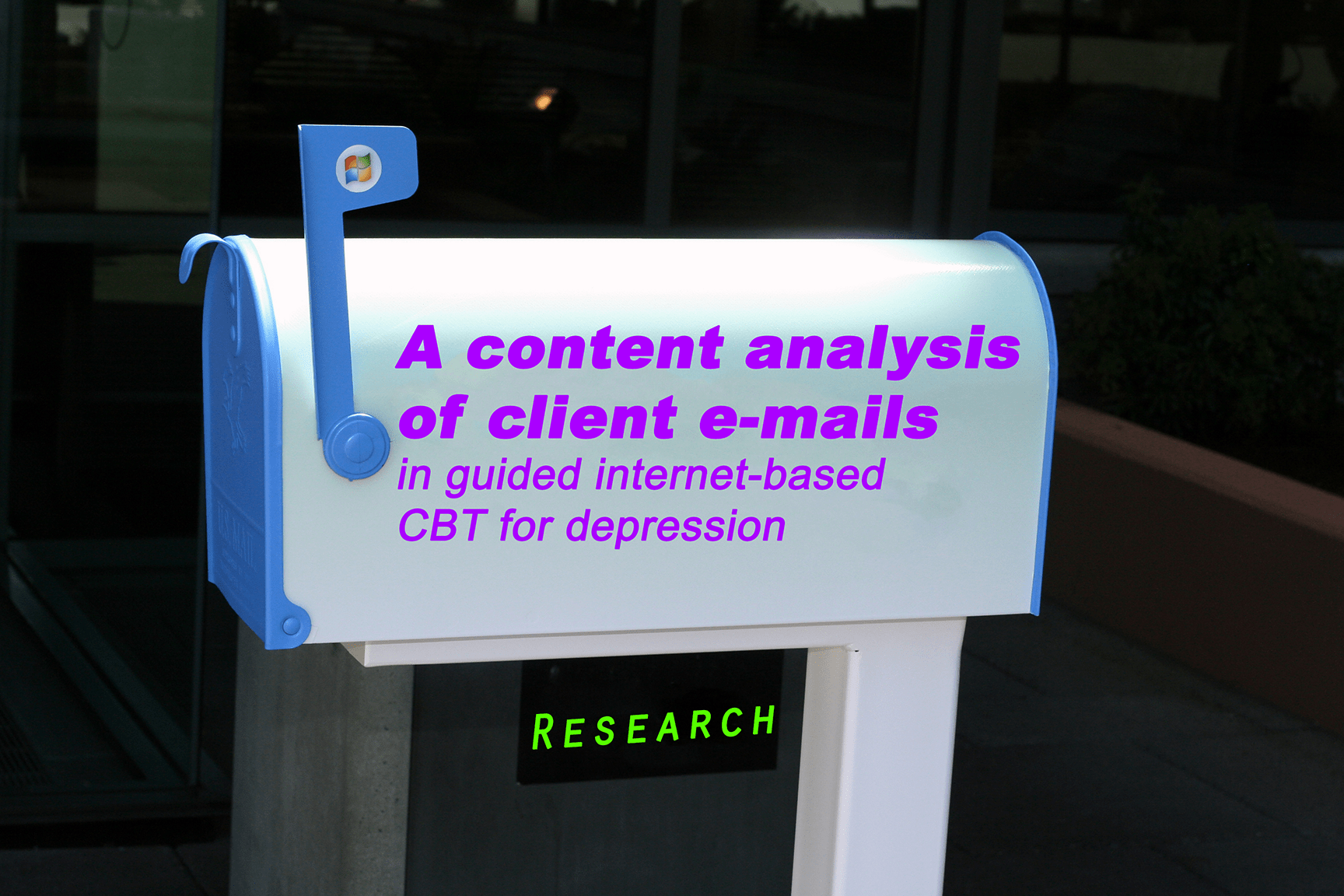The relationship between what a client writes when communicating with an online therapist and treatment outcome in internet-based cognitive behavior therapy (ICBT) is largely unknown. The aim of our new study (published today) was to addresses if written correspondence from the client to the therapist correlate with outcome and treatment completion.
A total of 29 participants with mild to moderate depression were included from an ongoing randomized controlled trial targeting depression. Content analysis involving ten categories was performed on all emails and module responses sent by the participants to their internet therapist. A total of 3,756 meaning units were identified and coded. Significant positive correlations were found between change in depression and statements in the two categories “observing positive consequences” (r= .49) and “alliance” (r= .42).
Treatment module completion correlated with seven categories. The result suggests that text dealing with alliance and observing positive consequences can be used as indicators of how the treatment is progressing. . This study suggests that written correspondence from an online client can be divided into ten categories and the frequency of those can be used by internet therapists to individualize treatment and perhaps make ICBT more effective.
Read the full paper:
Svartvatten, N., Segerlund, M., Dennhag, I., Andersson, G., & Carlbring, P. (in press). A content analysis of client e-mails in guided internet-based cognitive behavior therapy for depression. Internet Interventions. doi:10.1016/j.invent.2015.02.004
